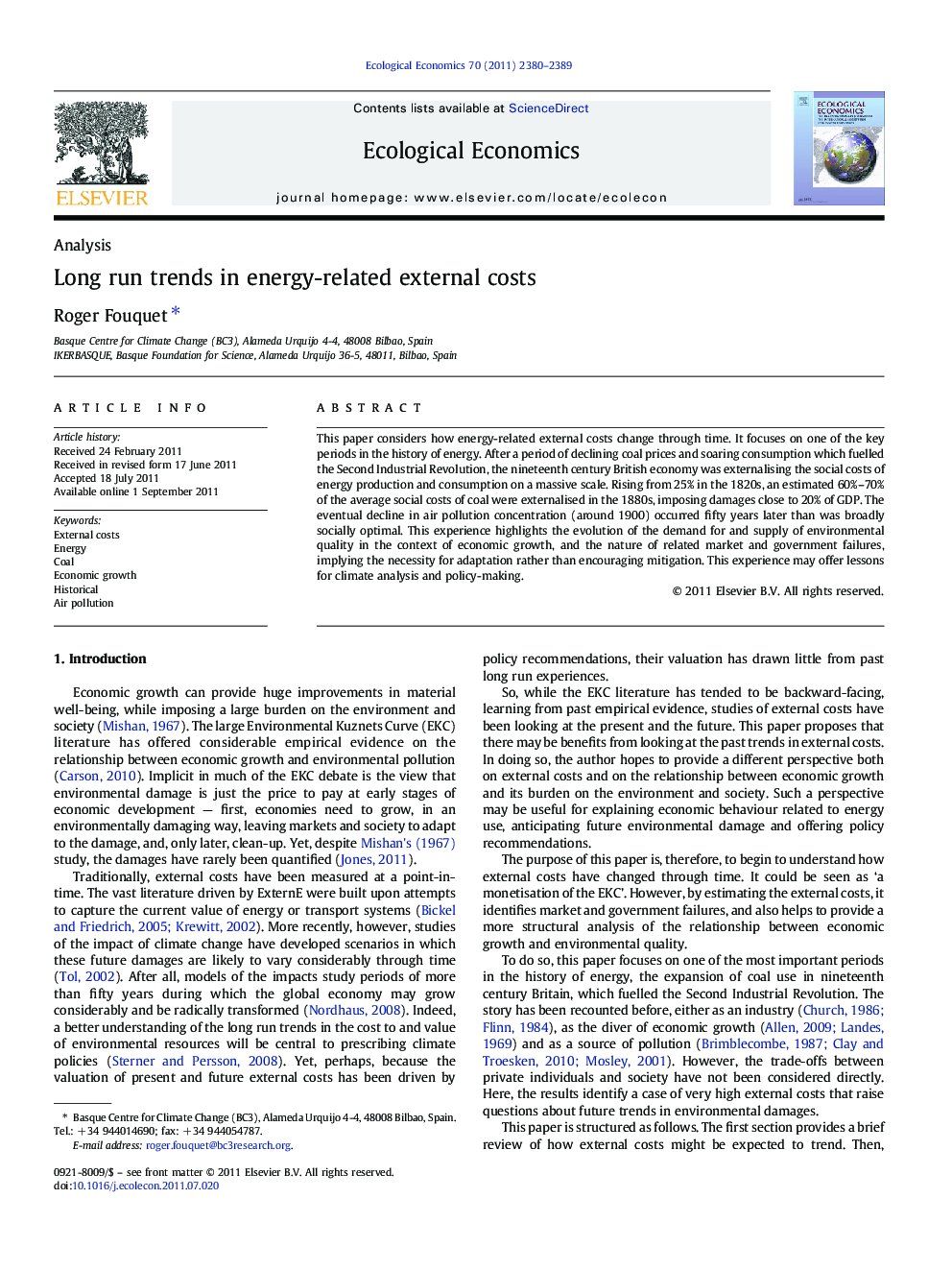| Article ID | Journal | Published Year | Pages | File Type |
|---|---|---|---|---|
| 5050504 | Ecological Economics | 2011 | 10 Pages |
This paper considers how energy-related external costs change through time. It focuses on one of the key periods in the history of energy. After a period of declining coal prices and soaring consumption which fuelled the Second Industrial Revolution, the nineteenth century British economy was externalising the social costs of energy production and consumption on a massive scale. Rising from 25% in the 1820s, an estimated 60%-70% of the average social costs of coal were externalised in the 1880s, imposing damages close to 20% of GDP. The eventual decline in air pollution concentration (around 1900) occurred fifty years later than was broadly socially optimal. This experience highlights the evolution of the demand for and supply of environmental quality in the context of economic growth, and the nature of related market and government failures, implying the necessity for adaptation rather than encouraging mitigation. This experience may offer lessons for climate analysis and policy-making.
⺠This paper investigates how energy-related external costs change through time. ⺠UK external cost rose from 25% in the 1820s to 70% of social costs in the 1880s. ⺠External costs imposed damages close to 20% of GDP in late 1870s. ⺠Stringent air pollution legislation was introduced 100 years later than socially optimal.
